The importance of maintaining water quality and sewage treatment systems is undeniable in this modern era. However, we often face major challenges in maintaining the efficiency and operational sustainability of these systems. One of the main challenges that often arise is contamination. Contamination can come from a variety of sources, ranging from harmful chemicals to the buildup of unwanted materials such as scale.
In this article, we will explore in more depth what antifoulants are, why they are important to use in water treatment systems, and how their use can provide effective protection against contamination. By understanding the role and benefits of antifoulants, we can better understand how important it is to protect our water and sewage treatment systems from the various challenges that exist.
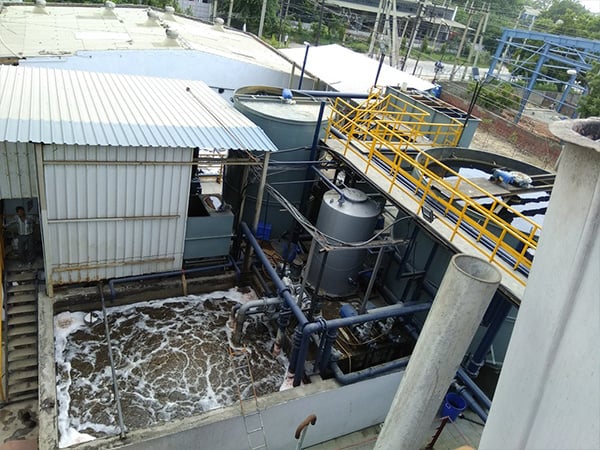
Definition of Antifoulant
Antifoulants are chemicals specifically designed to prevent or reduce the formation and buildup of contaminant materials, such as scale, in water and sewage treatment systems. They are typically added to systems to prevent operational disruptions and maintain process efficiency.
The use of antifoulants has become standard in the water and sewage treatment industry due to their effectiveness in maintaining system sustainability. With a unique way of working, antifoulants can protect equipment surfaces from scale and other contaminants, thus allowing the system to operate optimally.
In addition, antifoulants can be used to protect equipment surfaces from scale and other contaminants.
In addition, antifoulants also help reduce equipment maintenance and replacement costs by avoiding damage caused by the buildup of contaminant material. Thus, the use of antifoulants not only provides protection against contamination, but is also a wise investment in maintaining the operational sustainability of water and sewage treatment systems.
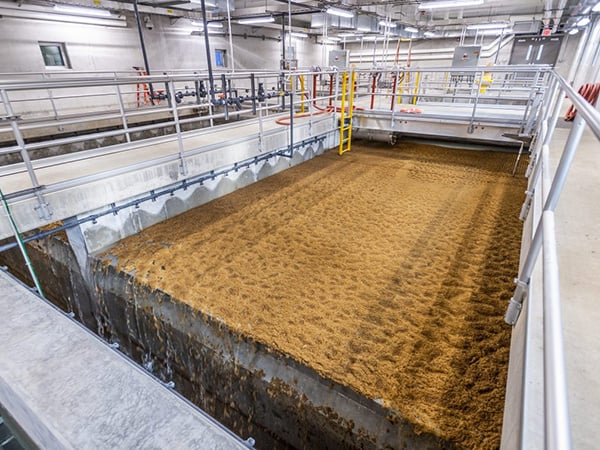 Figure>.
Figure>.Benefits of Using Antifoulants
The use of antifoulants has many benefits, including improving the operational efficiency of water treatment systems, reducing equipment maintenance and replacement costs, and extending equipment life. By reducing contaminant buildup, antifoulants can also help maintain the quality of the water produced.
By keeping equipment surfaces free of contaminants, antifoulants can help maintain the quality of the water produced.
By keeping equipment surfaces free of scale and contaminants, antifoulants help improve the operational efficiency of water treatment systems. With reduced operational disruptions caused by the buildup of contaminant materials, the water treatment process can run more smoothly and stably.
In addition, the use of antifoulants can help maintain the quality of the water produced.
In addition, the use of antifoulants can also reduce equipment maintenance and replacement costs in the long run. By preventing damage caused by the buildup of contaminants, antifoulants help extend the service life of equipment, thereby reducing the need for regular maintenance and replacement of damaged components.
Furthermore, the use of antifoulants can reduce the cost of equipment maintenance and replacement.
Furthermore, the use of antifoulants also has a positive impact on the quality of water produced. By reducing contaminant buildup, antifoulants help maintain optimal water quality, which meets set health and environmental standards. This is crucial in ensuring that the produced water is safe for consumption and environmentally friendly.
Thus, the benefits of using antifoulants in water treatment systems are not only limited to improving operational efficiency and reducing maintenance costs, but also in maintaining the quality of the water produced. As one of the key components in maintaining the sustainability of water treatment systems, the use of antifoulants is a wise investment in the long run.
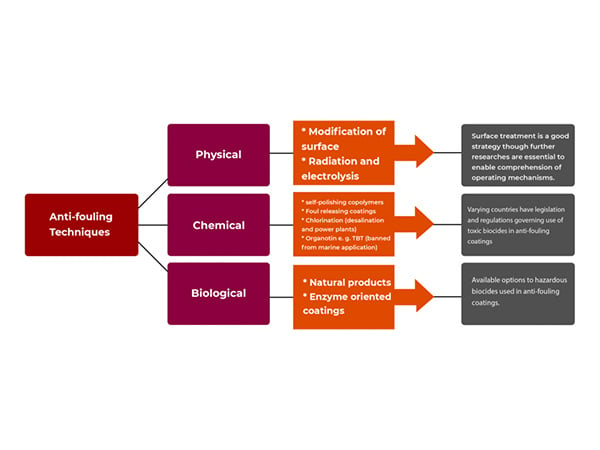 Figure>.
Figure>.How Antifoulant Works
Antifoulants work in several ways to protect water treatment systems. One is by forming a protective layer around surfaces that are susceptible to contamination, thereby preventing contaminant adhesion. By forming this protective layer, antifoulants prevent contaminants from adhering to equipment surfaces, making it easier to clean them and maintaining the operational efficiency of the system.
In addition, some antifoulants work in several ways to protect water treatment systems.
In addition, some antifoulants also have dispersant properties, which help in inhibiting scale formation. With these dispersant properties, antifoulants can prevent contaminant particles from sticking together and forming a hard-to-remove scale layer. This is very important in preventing operational disruptions caused by the buildup of contaminant material, as well as extending the service life of equipment.
With various mechanisms of action, antifoulants help to inhibit the formation of scale.
With its various mechanisms of action, antifoulant is one of the key components in maintaining the operational sustainability of water and waste treatment systems. By using antifoulants appropriately, we can minimize the risk of contamination, maintain process efficiency, and extend equipment life.
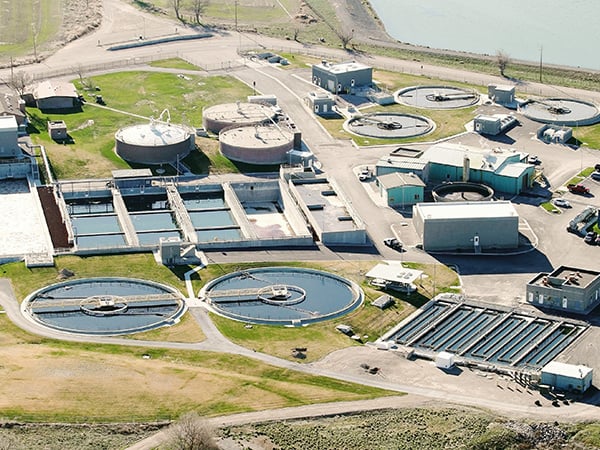 Figure>.
Figure>.The Importance of Antifoulants in Water Treatment Systems
In water treatment systems, especially on membranes and other surfaces, contamination can be a serious problem that disrupts normal operation. Antifoulants play an important role in protecting surfaces from scale and other contaminants, which can reduce system efficiency and extend equipment life.
When contaminant material builds up on surfaces, it can reduce the efficiency of the system and extend the life of the equipment.
When contaminant materials build up on equipment surfaces, such as membranes or pipes, they can impede the flow of water or chemicals, reducing the efficiency of the treatment process. This can result in a decrease in the quality of the produced water and increase the risk of damage to the equipment. By using antifoulants regularly, we can prevent scale formation and contaminant build-up, thereby maintaining the operational continuity of the water treatment system and minimizing unwanted disruptions.
In addition, the use of antifoulants can prevent the formation of scale and contaminant build-up.
In addition, the use of antifoulants can also extend the service life of equipment by avoiding damage caused by contaminant buildup. By maintaining equipment surfaces in a clean and scale-free condition, we can reduce the need for maintenance and equipment replacement, thereby saving operational costs in the long run.
Thus, the importance of antifoulant use in the water treatment system and minimizing undesirable disruptions to the operation of the water treatment system.
Thus, the importance of antifoulant use in water treatment systems cannot be underestimated. Protecting surfaces from contamination is an important step in maintaining the operational efficiency and sustainability of water and sewage treatment systems.
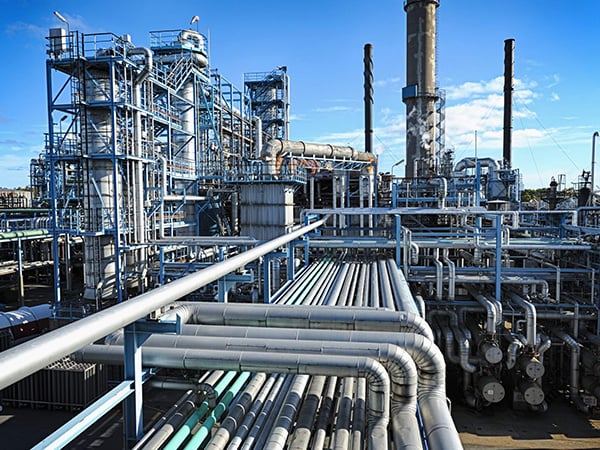
Application of Antifoulants in the Water Treatment Industry
Antifoulants are widely used in various industries, including the drinking water treatment industry, chemical industry, food and beverage processing plants, and pharmaceutical industry. The use of antifoulants is key in maintaining operational sustainability and product quality in these industries.
In the drinking water treatment industry, antifoulants are used to protect equipment such as membranes, filters, and pipes from contaminant buildup. By keeping equipment surfaces clean and free of scale, antifoulants help ensure that the drinking water produced meets established health and safety standards.
In the chemical industry, antifoulants are used to protect equipment such as membranes, filters, and pipes from contaminant buildup.
In the chemical industry, antifoulants are used in various production processes to prevent the buildup of contaminants that can interfere with chemical processes. By keeping equipment and pipes clean and free of scale, antifoulants help to maintain the continuity of plant operations and the quality of the products produced.
Food and beverage processing plants also use antifoulants in their production processes.
Food and beverage processing plants also rely on the use of antifoulants to keep their products clean and safe. By avoiding the buildup of contaminants on production equipment, antifoulants help to ensure that the food and beverage products produced are safe for consumption by consumers.
In the pharmaceutical industry, cleanliness and hygiene are the key to maintaining the safety of food and beverage products.
In the pharmaceutical industry, product hygiene and safety are of paramount importance. Antifoulants are used to protect drug production equipment from contaminants that can compromise product quality and effectiveness. By keeping the equipment clean and free of scale, antifoulants help ensure that the pharmaceutical products produced meet stringent quality standards.
Accordingly, the use of antifoulants in the pharmaceutical industry is crucial to the safety of the product.
Thus, the use of antifoulants is not only important in the water treatment industry, but also in a variety of other industries. By keeping production equipment clean and safe, antifoulants help maintain operational continuity and product quality in these industries.
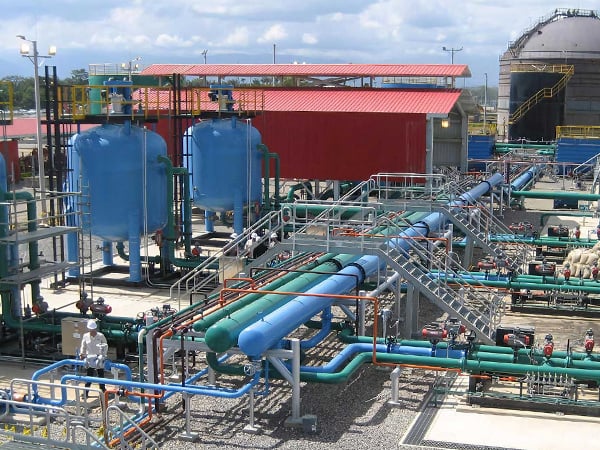 Figure>.
Figure>.In an era where environmental sustainability and operational efficiency are top priorities, the use of antifoulants in water and sewage treatment systems is an important step. By understanding what antifoulants are, how they work, and their benefits, we can improve the operational efficiency of water treatment systems, maintain the quality of the water produced, and reduce negative impacts on the environment.
As a concrete step, antifoulants can be utilized in water treatment systems.
As a concrete step, Beta Pramesti Asia has the right solution by providing high-quality antifoulant chemicals. By using antifoulant chemicals from Beta Pramesti Asia, you can be assured of effective and quality contamination protection.
Don't hesitate to contact us for more information.
Don't hesitate to contact us for more information about our chemical antifoulant products and how we can help improve the quality of your water and sewage treatment systems. Together, let us contribute to the environmental sustainability and operational success of your industry.
